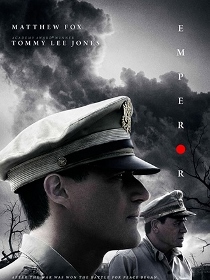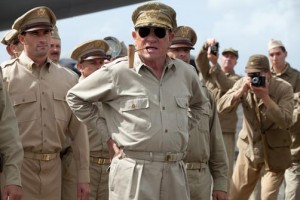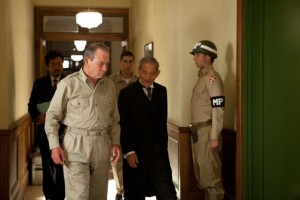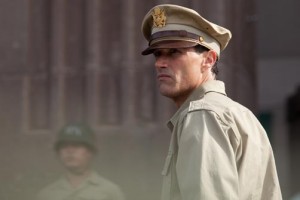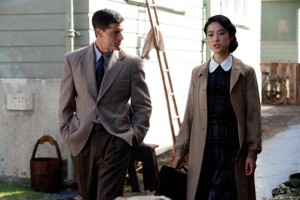WHEN HISTORY IS NOT ENOUGH
A series of releases in the last few months – Zero Dark Thirty, Argo, Lincoln – have highlighted the ever-present conundrum of historical depiction in film, especially in regards to accuracy and storytelling. One film was threatened with Congressional investigations over its portrayal, and another took vast liberties with the Iranian hostage crisis (but no one except the Iranians seemed to mind). Yet no film is quite as dependent on history as Emperor, a competent film that exists for little more reason than its own historical representation – a starter kit version – of the first days of post-World War II Japan. The backdrop is historically grand. The material is promising. The execution is’¦ acceptable.
Peter Webber’s film really has no other story to tell than whether or not the American occupiers will end Japan’s 2,000 year old monarchy (which we are reminded of ad infinitum). The year is 1946, the Americans have landed in Japan, and General Douglas MacArthur (Tommy Lee Jones, Hollywood’s go-to general of the moment) has arrived to oversee the reconstruction. At his side is his Japanese expert, General Bonner Fellers (Matthew Fox of Lost, who was the talk of the women in the elevator post-viewing), who lived in Japan before the war. Among their duties is the prosecution of war crimes. The biggest question is what to do with the reclusive Japanese Emperor Hirohito, whose role and complicity in the Pacific War remains debated to this day. The politicians are pressing to prosecute Hirohito as a war criminal, a move that would risk a popular revolt and a Russian invasion.
Based on an account by author Shiro Okamoto, Emperor is conceived almost entirely as a history lesson, (with a little mystery and a curious romance thrown in). It commits a grand cinematic no-no, which is being incredibly self-aware of its own historical importance. The many telling-not-showing voiceovers – “The decision I’m about to make will impact Japan forever” – end up being a rather uncreative approach to what is a “decision” not to be taken lightly.
The positive side is that it is very detailed about an interesting moment in time. It brings the bright lights of cinema to little known historical events, such as the attempted coup in the morning before Japan’s surrender. The highlight of Emperor is the post-bombing Tokyo landscape that it drops us into, with almost every building in Tokyo laying in ruins, and survivors living under whatever can cover them. Emperor marks the way that cinema can bring dry history lessons to life.
Emperor is only an intriguing detective story where it might have been a meditation on memory, justice and/or power. In different hands, it might have been art. A story deserving of greatness is given only competence. What we’re left with is an acceptable history lesson.
photos courtesy of Roadside Attractions
Emperor
Roadside Attractions, Krasnoff Foster Productions, Eagle Films
USA / rated PG-13 / 98 mins.
in wide release March 8, 2013
for more info, visit http://emperor-themovie.com/
